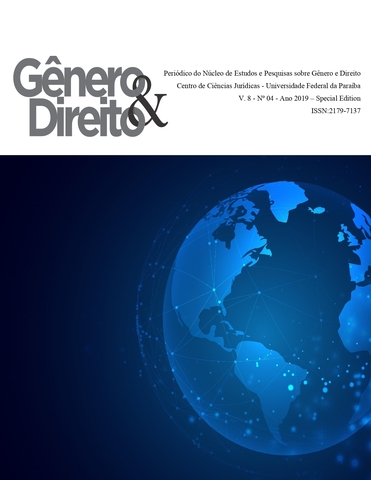INVESTIGATION ALLITERATION FROM ABD AL-QAHER JURJANI’S PERSPECTIVE
DOI:
https://doi.org/10.22478/ufpb.2179-7137.2019v8n4.48422Palavras-chave:
Alliteration, Aesthetics, Eloquence, Jurjani. RhetoricResumo
This acritical studies alliteration in Jurjani’s perspective in order to grasp its significance in all poetic speech and its connection to aesthetics of poetic discourse. We tried, using the analytical method, to make clearer just what role each of words and meanings plays in the beauty of the alliteration and its acceptability. The results showed that in Jurjani’s opinion, the beauty of speech is not summed up in words. Had the beauty of the alliteration merely relied on words, it would have become something undesirable. He believes that what determines goodness or badness of alliteration is its meaningDownloads
Referências
Anvar, S.A.M., Dibaji, S. I., & Abdulhosseini, H. (2010). Basics of Metaphor Aesthetics from Abd al-Qager al-Jurjani’s Perspective, Didactic Literature Review (Persian Language and Literature Review): Winter 2010, Vol. 2, Issue 8. pp. 1-20.
Ashmavi, M. Z. (1984). The problems of Arabic criticism, Lebanon, p. 280.
Badavi, A. (2002). Abdal Qager Jurjani and arabic rhetoric, Cairo, p. 239.
Buhturi, (1964). Collections, Hassan Kamel alsarifi, Egypt, Dar alma'arif, pp. 78-93.
Daif, S. (2004). History and Evolution of Rhetoric, Translated by M. R. Turki, Iran, pp. 218-243.
Daneshvar, S. (1996). Understanding and Praising Arts, Iran, Siamak Books Pub, pp. 217-232.
Foroukh, A. (1989). Arabic Literature History, Vol. 3, pp. 183-184.
Gatala, P. (1957). Analytical Aesthetics, Translated by Alinaqi Vaziri, Iran, pp. 28-63.
Ibn al-Mu'tazz, A. A. M. (1945). the rhetoric, Lebanon, Dar al Jail, p. 55.
Ibn al-Anbar, A.R.M. (2007). Nazhatu alaba fi Tabaqat aladebba, Muhammad Abulfadhl Ibrahim Publications, p. 363.
Ibn al-Athir, Z. D. (1939). Almasal al Sa'erfi Adab al Katie va al Sha'er, Lebanon, Vol.1, p. 243.
Jurjani, A. Q. (1981). Secrets of Secrets of Elucidation, Lebanon, pp. 18-38-146.
Khanlari, P, N. (1974). Poetry Meter, Iran, p. 54.
Newton, E. (1964). The Meaning of Beauty, Translated by Parviz Marzban, Iran, p. 64.
Paygozar, N. (2000). Alliteration Representations in Persian Poetry, Iran, pp. 9-10.
Qazvini, K. (2002). Al izah fi uloome al balaghat, Cairo, p. 214.
Rajayee, M.K. (1961). Moa'alem Albelaghah in Semantics, Discourse and Rhetoric, Iran, p. 402.
Razi, S. Q. (1948). Al Mo'jam fi Ma'ayer Asha'r al Ajam, Iran, p. 337.
Rommani, A.H A.I. (1967). Al Konto fi Ejaz al Quran, Egypt, p. 91.
Safdi, S. (1978). Jannan ul Jinas, Lebanon, 23-25.
Shafiei Kadkani, M. R. (1991). Music of Poetry, Iran, pp. 55-56-390-395.
Shayeganfar, M. (2015). Examining Abd al-Qager al-Jurjani’s Psychological Criticism: A Look at The Secrets of Eloquence, Journal of Literary Criticism and Rhetoric, Vol. 1, pp. 1-4.
Skaki, A. Y. (1937). Meftah ul Oloom, Egypt, p. 237.
Tabrizi, K. (1970). Description of Abu Tammam Collection, Egypt, pp. 21-43.
Taghavi, N. (1938). Discourse Norms, Iran, p. 206.
Tajlil, J. (1988). Alliteration in the Realm of Persian Poetry, Iran, Cultural Studies and Research Institute, Vol 4 (14). pp. 75-119.
Zarrinkoob, A. H. (1977). Poetry without Lies, poetry without Veils, Iran, pp. 83-111.
Zaki al-Oshmavi, M. (2006). The Theory of Imam Abd al-Qager al-Jurjani, Literary Text Research Journal, No. 29, pp. 70-95

